Between the Zombies’ current UK tour, an animated video featuring lyrics from promotional single, ‘Dropped Reeling and Stupid,’ the release of third single and video ‘Merry-Go-Round,’ the documentary, ‘Hung Up on a Dream,’ which received its premiere at Austin’s SXSW in March, and the recent release on the 31st March of ‘Different Game,’ these Hall-of-Famers are firing on all possible pistons in 2023. Founding member, organist and singer-songwriter Rod Argent recaptures the studio highlights and logistics and reveals his major, musical inspirations in this interview with Pennyblackmusic. PB: Congratulations on completing ‘Different Game’, Rod. ROD ARGENT: Thank you. We had a wonderful reaction, initially, from industry people like yourself. I can’t wait for it to go a step further here in America. People, universally, are saying the same thing. It’s exciting. PB: In a press release, you said, you wanted to “record in as live a way as you could to capture that magical, fleeting quality of energy and immediacy.” You can hear the squeak of the guitar strings and Colin’s every nuance. Please fill us in on the production details. RA: I’ll try to do this in not too rambling a way (laughs), because once I start it can be an hour longinterview. I moved house about eight years ago and had a studio built in a barn garage and, this is hard to believe, but I managed to get the guy who designed the studio and control rooms at Abbey Road to design my place acoustically. He did a wonderful job so I was excited to try and record a project there. I’ve done loads of production in my life, in all sorts of ways, but I wanted to go back to the way that we used to have to record because we had no choice in the old days, when you only had a few tracks, and with everybody in the room at the same time, so the people bounce off each other and minutely adjust what they are doing to every millisecond – it’s just a natural process with musicians when you’re playing together. On every track, except on ‘Drop Reeling and Stupid’. where I share the vocals with Colin, I wanted him to always have a guide vocal; he was very free afterwards to do whatever he wanted but we found that it worked so beautifully that most of the guide vocals we just kept. They became the master vocals because Colin would adjust what he was doing, just like onstage, and we would adjust what we were doing to what he was doing and to what everyone else in the room was doing. What you’re after is, everyone joining into the recording and you get that sort of energy that you get onstage, and you actually do record the tracks more quickly. It’s extraordinary. We would add harmonies afterwards, but the essence of the tracks was recorded in about three or four hours, and we would do, typically, about eight takes of a track. Inevitably you cover the bases, but then you play it back, and there would always be one that seemed to be placed in the past. It had that magic. It’s the old way of trying to capture just a magic moment in time and then you freeze it, with the wonders of technology, forever. And it’s something that we really, really wanted to do. And we did. We did the first tracks, actually, before the pandemic started. We’d just been inducted into the Rock and Roll Hall of Fame. We’d had a long period of playing in the States before that, and I felt that we’d never sounded so good. We couldn’t wait to get back. We recorded ‘Merry Go Round’ and ‘Runaway’ first of all, because I wanted to see if we could go through the whole process of recording a couple of tracks, and make sure that the system worked. We loved what we had. I got a friendly DJ from a local station - I said, “Would you play these two tracks on air? Talk all over the intro. and all over the outro. so, nobody will record it and use it.” In the old days, the Rolling Stones, when they made a record, used to farm it out to a local DJ and then listen to it on the radio because all sorts of processes go on in radio. It’s really important to know how the record sounds on the air. So, that was the magic test. I got the DJ to play it, and then, the guy, whom I co-produced the album with, Dale Hanson, a wonderful, live soundman, and I, tuned into the radio broadcast and it sounded absolutely great on the air. I thought, “Fantastic, we’re off”’ and then, Covid hit with a vengeance and stopped us recording in this way. Everything ground to a halt. It was a really important thing to us, and we stuck to our guns, but it took, really, two years to record because of that. It was very, very frustrating, but at least it gave me time to write material in an unhurried way with the knowledge that the studio was turning out exactly what I wanted to do in terms of the final thing. The other overriding thing was that I wanted to recreate the experience of recording ‘Odessey and Oracle’ because Chris White and I, who was the other writer, wanted to make an album, so that our songs sounded pretty much like we heard them in our heads when we finally recorded. It’s not that the styles of the producers weren’t great but they always have their own vision of it. We wanted our vision and I wanted to do that again with this album; a totally in-house production recorded in my studio. As I said, I live in a barn conversion and the biggest part of it is thirty feet high and so it was a wonderful acoustic for the strings that we recorded. I have a grand piano in that room, too, which was wonderful to use, so the whole process was a joy. That’s the oversight of how we approached the album. PB: Let’s move on to specific tracks. There is a thrilling balance of “rockers” versus “ballads.” ‘Got To Move On’ features blues-harp and lightning fast guitar. Who’s playing the blues-harp? RA: That’s me. I used to play when The Zombies first started in 1961on that very first album, which was recorded in a day, which is how albums were done in those days. In 1964, I played blues-harp on a couple of tracks on that. PB: You still have the chops! RA: Thank you. I had to practice. I only did it because we put the bass track down, and I went into the house and played it to my wife. She said, “I love it. It would be great to have harmonica on this.” I said, “I haven’t played for fifty or sixty years. I don’t know if I can even bend a note on it anymore,” but I found a couple of old harmonicas and I went into another room in the house. I was playing it over and over for about an hour. Gradually, my memory returned and I was really enjoying it. I told Dale, the co-producer, “I’ve got to have a go at this. I think, it will be great,” and I loved doing it at the end. PB: I had the impression that the title song is about growing old gracefully; owning up. Is ‘Different Game’ about transforming; getting accustomed to a new way of thinking? RA: You’ve got that exactly. That is one facet of what it’s about. It was actually triggered, like so many things, by an actual situation. It had nothing to do with me, I hasten to add, but it was to do with the band. Someone in the band was blaming everyone else in the band for his unhappiness, and he thought it was the way that they were playing, and I realized that they were playing as well as ever; everybody was, and all of his problems were in his own head. He was trying to get someone else to take the blame, but in fact life was and is such a different game when you get older. It can be rich, but you can’t expect it to be as rich as when you were twenty or twenty-five-years old, and in this particular band’s history they started with some hits, and things were getting much more difficult instead of just enjoying the experience and doing it for its own sake… I think it’s so, so important when you’re in a band - you’ve always got to play things for real and you have to remember what made you so passionate to form a band in the first place. We still talk about bands and always do things for real and for the music, for the joy that you get out of achieving something musically. And not just spread your unhappiness around and not affect other people with it. That was the trigger point, but I think it can also apply in many ways, because I think the human condition - we all go through some common emotions, actually, and they’re usually triggered in different ways, but we’re all human and I think people bring their own experiences to a song. I always try to write songs that people can identify with emotionally in their own way and it often seems to happen like that. PB: You elected to use multiple string arrangements on this album. Were they sampled or live? RA: I wrote the scores for the strings. It was wonderful because it just so happened by chance. I told Dale that it would be great to have a small string section, a quartet, maybe, on this. He said, “I can tell you someone that’s great.” In fact, she lives in St. Albans in Herefordshire where I grew up. I called her up and she said, “I used to live around the corner from your drummer and bass player, the original bass player, Jim Rodford.” She has this group, The Q Strings. They play classically, like the Shostakovich Quartets, and they love rock ‘n’ roll. They’ve played with a list as long as your arm: ELO, Brian Wilson, Gilbert O’ Sullivan. Dale said, “You should give her a try,” and I said, “That’s great.” So, I recorded them in my barn with the thirty-foot ceiling which is a gorgeous acoustic and we had a ball. I wrote two of the three string arrangements on the record: ‘Different Game’ and ‘You Could Be My Love.’ It was completely in our control in our surroundings and we got what we wanted to get out of it. It was a lovely experience. The third string arrangement was on ‘I Want To Fly’ and that was the only song on the album that I had recorded before. The reason we did this one is because I said to Colin, “Would you mind revisiting something that we’d done before?” When I wrote the string arrangement for that song, I did it for the whole band, with drums and bass and everything. I said, it would be lovely to revisit an album that Colin made in the 70s (Blunstone’s debut solo album) that Chris White and I produced called ‘One Year.’ Certainly, we had huge hits from that album. But Chris Gunning did the most wonderful arrangements on that song, and the arrangements were very practical. I originally phoned Chris up and said, “Would you do an arrangement now because I would love a pure single voice from Colin against one of your arrangements?” He said, “Play me the song.” So, I played him the song and he absolutely loved it. Chris is a classical composer but has also written for TV and films. He has spread his net wide and he likes rock ‘n’ roll as well. He said, “You’ve got to play me the arrangement you did.” I said, “No, because you might hate it or you might love it.” There are the extremes. If you hear it, you can’t unhear it. I told him, “I want your natural reaction and your expression and your contribution to it.” So, he did it and I loved what he wrote. Again, the Q Strings did it and Colin didn’t think he was doing the vocal on that. He was in the control room remote from where they were recording. He was just singing along with it, but I made sure that he was singing in front of the microphone, and it was only him going through it, if you know what I mean, but it had a spontaneity about it that I loved. We kept that and I know that Colin loved that song anyway; he loved the lyrics, and it’s one of my favourite songs, as well, that I’ve written. So, it was lovely to revisit. PB: ‘Rediscover’ features gorgeous 1950s-style harmonies. Coincidentally, The Zombies toured with Brian Wilson for the “Something Great From ’68” tour back in 2019. In regards to this arrangement, were you influenced to any degree by Wilson’s own choral arranging ideas? RA: I’d written this song, first of all, before we did the tour with Brian Wilson. I played it to Colin and he really liked it, and it was in the back of my head. What used to happen, when Brian was warming up for the show with his band – his big band. It’s a beautiful band as well. They all sing. Brian loves harmony above everything else so they were all warming up with a fairly new song of his, or an old song; a standard. And our dressing rooms were close, especially on this particular night, and I thought, “Those a cappella vocals sound beautiful.” I had this in my head and the next morning I had a day off. I had a piano in my room and I just scored out an a cappella, eight-bars basically, and I thought I’d get the guys to try that in my dressing room. I said, “Can I grab you all for a few minutes?” I gave them each a line to sing. I wondered how it would sound with all of the different voices. They sang it and I thought, ”Oh, that sounds great.” I thought on the song that I’d written we could use that as an a cappella section on the front, and then, I would love some big harmonies on the middle of it, as well, but in a more conventional way in the middle because it was a bit of part writing in the beginning, which I love to do. And it was one of the only things that we didn’t do live; that we multi-tracked. Now, about the harmonies that are in the song; I gave the guys their parts when we were recording. I said, “Can you sing this part and this one?” I put some samples on just to show them how the harmony should work in the middle-eight in the main song because I wanted it to be really accurate. We laid down the tracks in the way that I described with everyone playing at the same time, and with Colin singing the lead vocal, but with the harmonies. We put them on afterwards and it wasn’t sounding as big in the middle. We hadn’t come up with the opening yet. My brother-in-law was helping that day; he’s Paul McCartney’s recording engineer. He said, ‘’You should really just do it in an old-fashioned way. Just sing around one mic.” And I hadn’t done that for so many years. But he said, “Give it a go,” and we all got around one mic and it sounded fantastic. And in that main song, the harmonies sound gloriously sized. It absolutely came through. We did it once and then we double-tracked it and that was it. Then we approached the beginning. It was late at night, about 11:00 when we started. First of all, we did all that separately. I did my high falsetto part that I took, and we put a click track on at the beginning so that we could all sing with Colin. We hadn’t done anything with a click track on the rest of the album. It was all free and as live as we could make it. I sang my second part, which was lower down. We got Soren Koch, our bass player, to do his part. Then, I asked Colin to sing a part which was very reminiscent of the lead line in the song. Then Tom did his part and we did that track separately. I might have even added a low part after that. Then, we double-tracked each part and that was the opening. We looked at that in a more normal way; how people do harmonies now when they lay it down piece by piece, but it was beautiful, just those beautiful eight bars. It was totally a cappella, no instruments underneath, and it went straight into the main song. And I really loved the effect. But I have to say (laughs) that the initial thing was from hearing Brian and the band warm up next door. PB: ‘You Could Be My Love’ begins with just you on piano and Colin interpreting. I’ve seen The Zombies live many times and I can testify that the fans always look forward to the part of the concert in which you two share the spotlight. You captured that intimacy so well; and then the strings come in…Finally, at the end, you take us out with some sophisticated jazz voicings. RA: I’ve always loved jazz. I’m self-taught, like most people in this business. When I first discovered Elvis, when I was eleven-years-old, I was knocked out by the most raucous records that I could find. I’ve still got those records in my jukebox at home. Because for the first three years, I thought that Elvis was transcendent in his voice and that what he was doing was just wonderful. But. even at that time, I was being knocked out, as well, with the early Miles Davis Group with John Coltrane and Cannonball Adderley and the first thing that I was able to buy was ‘Milestones’ which had its first modal experiments. I didn’t know they were modal at the time. I’ve always loved jazz and one of my favourite keyboardists ever is Keith Jarrett and it was just a nightmare for me, and Keith, obviously, when I found out that he’d had a stroke and lost the use of his left hand. PB: Keith Jarrett is one of our greatest innovators. RA: Such a tragedy. I’ve always loved jazz and I thought, at the end, I would do a fairly sophisticated harmony, a quick harmonic sequence to finish the song (laughs) on piano. But the idea of the song in the first place was to make, what I hoped was, a very effective love song with just Colin and me. That was the original idea in my head. I had already started rehearsing with Colin – we always work together when I first get a song, and, around that time, I don’t remember what I heard, but it could have been an Adele thing, because she sometimes does things just with piano, and at an unexpected moment some strings came in. It was such a surprise. I thought, “Wow, it might be lovely to do that on ‘You Could Be My Love’.” So, the idea was just Colin and me, and then I did add a simple bass part to expand on that, and then, I hoped, it would be a surprise, when what I originally conceived as a few ittle solo bars on the piano was bathed in, suddenly, a string quartet coming in. That’s what we did and I love the effect. It feels like, “Wow, I wasn’t expecting this,” because we’d gone half-way through the song and then suddenly there’s a string section. I loved writing that part. I just loved it and then, when they put it on again, in my studio, in my houseI loved it. With recording, everyone wants to get the best out of what they’re doing. It could become a real grind sometimes but nothing was a grind on this album. Everyone was enjoying the process. So, I hope some of this feeling was captured in the album. PB: On ‘Runaway,’ I noticed a Baroque twist, a kind of Bach-tribute on your solo. RA: Yea. That’s always in my head. Bach is one of my inspirations and always has been. We were a working-class family and this was an unusual thing, but when I was about eleven my mom got me to join a cathedral choir. We had a young guy there who’d just gotten his masters in music and he became one of the best Bach organists in the world. Hearing him play Bach on the organ at the cathedral was just amazing. He got a live performance of a Bach piece that I was singing in, and oh, God, it was just wonderful. Bach has always been a real thing for me and that contrapuntal thing, with one line going against another, has always attracted me. PB: Thank you.
Band Links:-
https://www.thezombiesmusic.com/https://en-gb.facebook.com/thezombiesmusic/
https://twitter.com/TheZombiesMusic
http://www.colinblunstone.net/
https://en-gb.facebook.com/colinblunstone
https://twitter.com/colinblunstone
Play in YouTube:-
Have a Listen:-
Picture Gallery:-
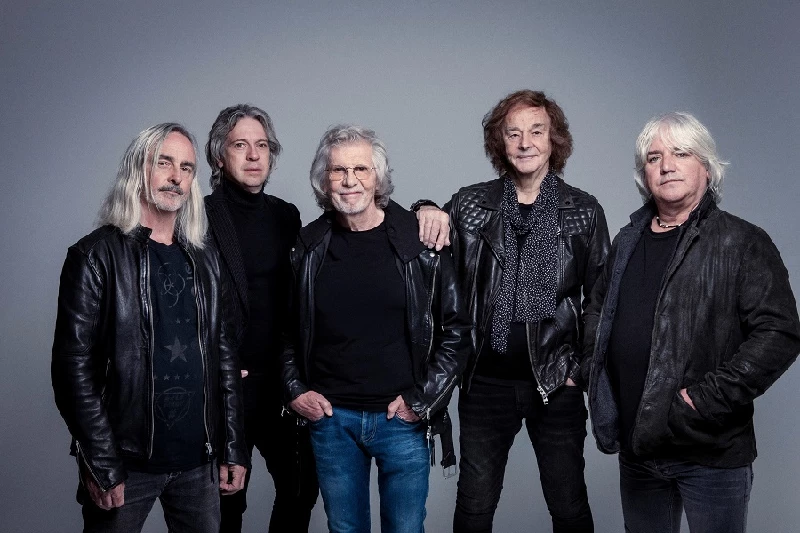
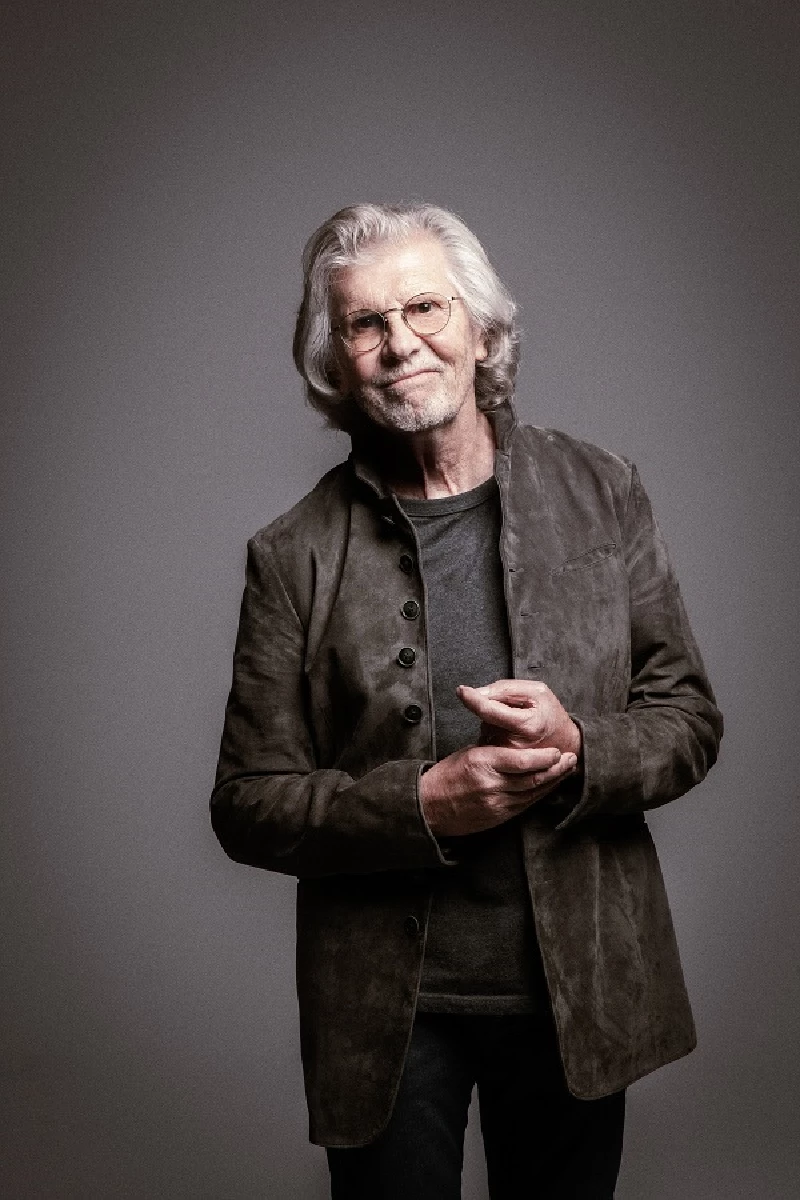
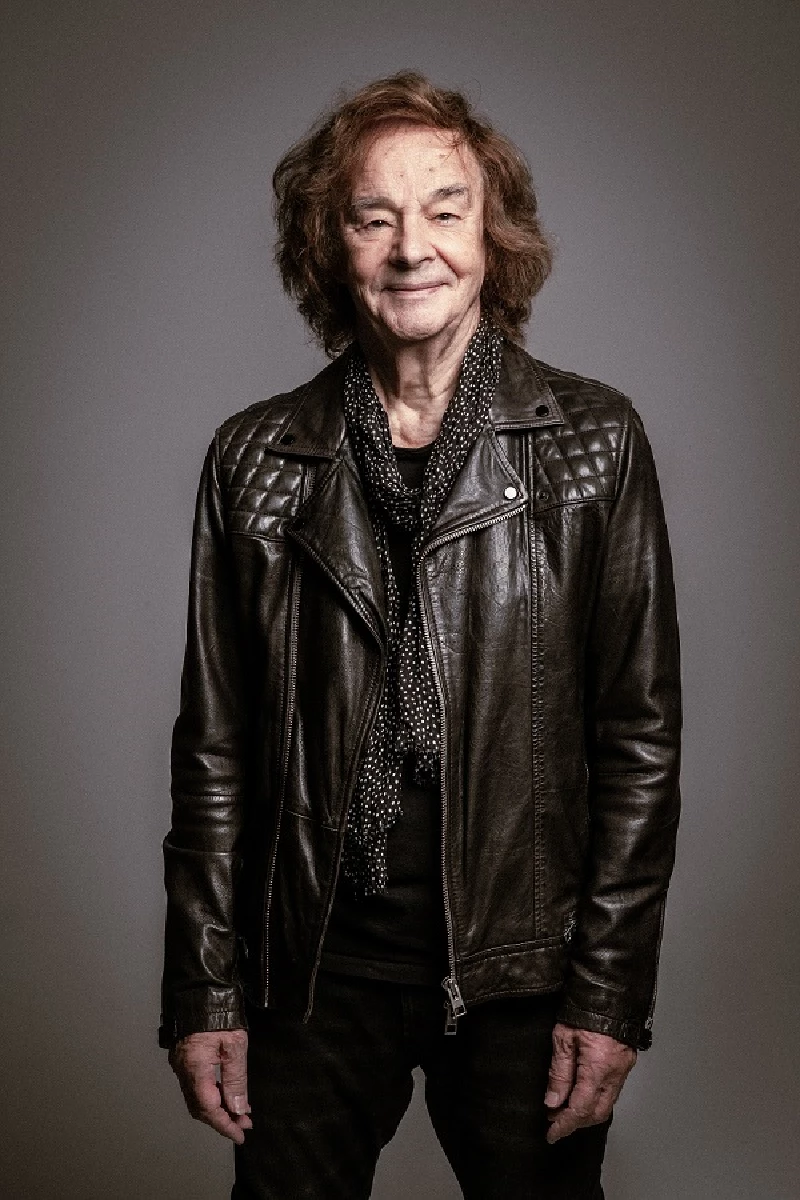
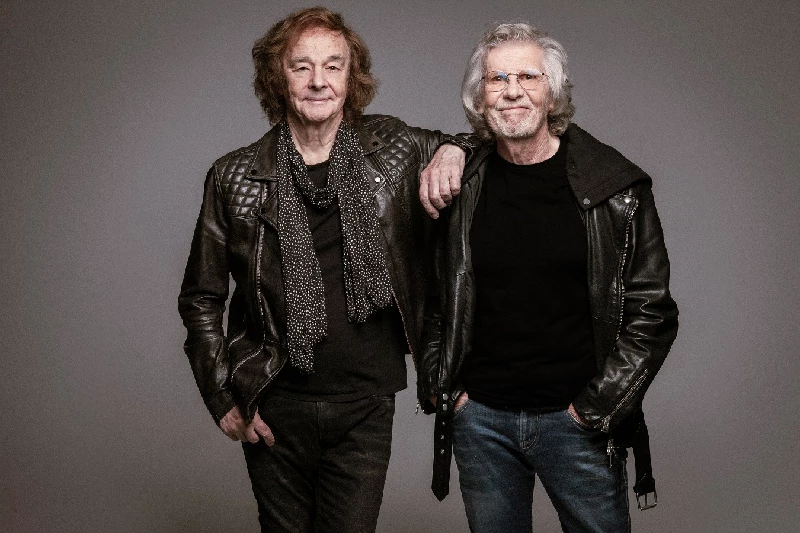
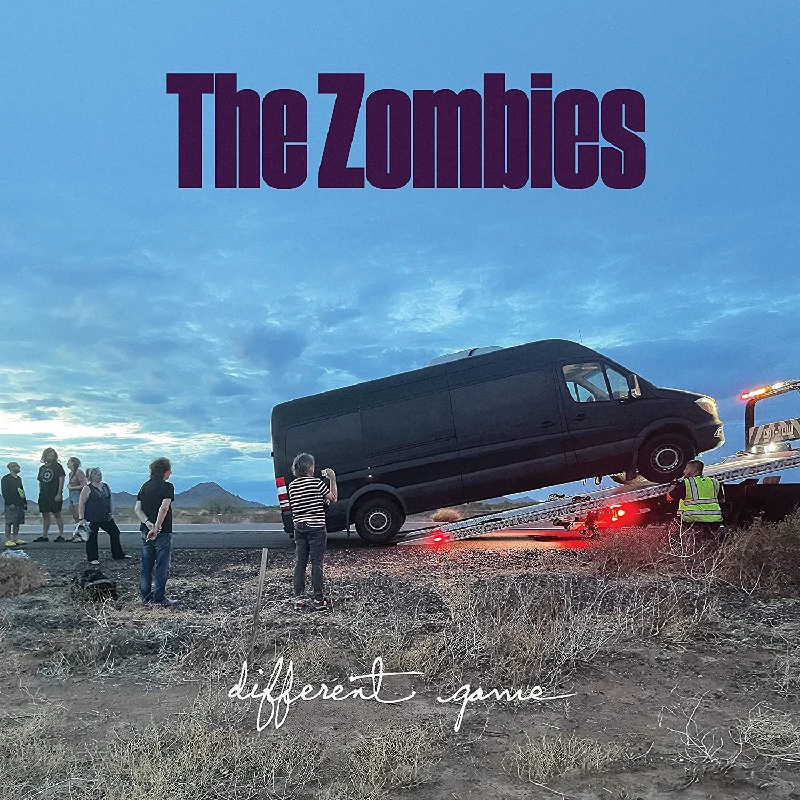
intro
Lisa Torem discusses the production decisions and various tracks of the new Zombies’ album, ‘Different Game’ with founding member, songwriter and arranger Rod Argent.
interviews |
|
Interview (2024) |
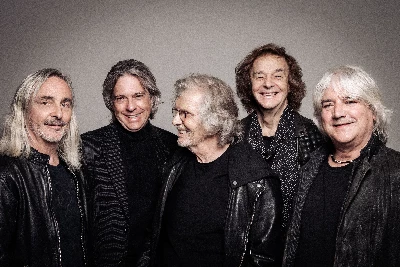
|
| Vocalist Colin Blunstone talks to Lisa Torem about the Zombies’ upcoming UK and US tours, special guests and how the music business has changed since the Sixties. |
| Interview (2021) |
| Interview (2020) |
| Interview with Colin Blunstone (2018) |
| Interview (2016) |
| Interview (2016) |
| Interview (2015) |
| Interview (2011) |
profiles |
|
In the Beginning (2019) |
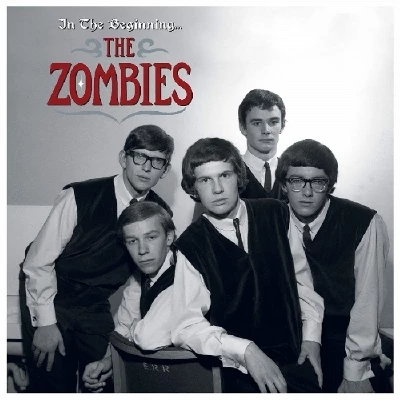
|
| Adam Coxon profiles 'In the Beginning', a new five LP vinyl only only box set of early Zombies recordings. |
live reviews |
|
Old Town School of Folk Music, Chicago, 1/7/2022 |
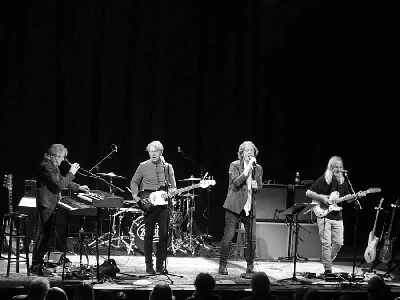
|
| After a two-year lockdown, The Zombies rose above adversity to tour and celebrate their 2019 Hall of Fame induction. Lisa Torem at the Old Town School of Folk Music in Chicago enjoys both the classics and new tunes. |
| City Winery, Chicago, 20/3/2018 |
| Mayne Stage, Chicago, 1/8/2012 |
| Ferry, Glasgow, 19/11/2011 |
photography |
|
Photoscapes (2015) |
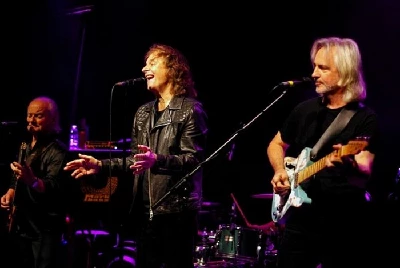
|
| Darren Aston takes photographs of iconic 60's band the Zombies at the Arts Club in Liverpool |
reviews |
|
Breathe Out Breathe In (2011) |
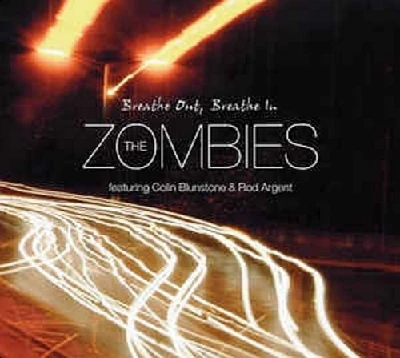
|
| Occasionally effective latest album from influential 60's act the Zombies, which, however, doesn't unfortunately match up to the classic work of their past |
most viewed articles
current edition
Carl Ewens - David Bowie 1964 to 1982 On Track: Every Album, Every SongArmory Show - Interview with Richard Jobson
John McKay - Interview
Colin Blunstone - Thalia Hall, Chicago, 16/7/2025
Billie Eilish - O2 Arena, London, 10/7/2025
Bathers - Photoscapes 1
Visor Fest - Valencia, Spain, 26/9/2025...27/9/2025
Loft - Interview
Sir Tim Rice - Interview
Robert Forster - Interview
previous editions
Manic Street Preachers - (Gig of a Lifetime) Millennium Stadium, Cardiff, December 1999Heavenly - P.U.N.K. Girl EP
Beautiful South - Ten Songs That Made Me Love...
Peter Perrett - In Dreams Begin Responsibilities Interview Part One
Boomtown Rats - Ten Songs That Made Me Love....
Oasis - Oasis, Earl's Court, London, 1995
Trudie Myerscough-Harris - Interview
Coldplay - Wembley Arena. London, 16/8/2022
Prolapse - Interview
Pixies - Ten Songs That Made Me Love...
most viewed reviews
current edition
Davey Woodward - Mumbo in the JumboSick Man of Europe - The Sick Man of Europe
Lucy Spraggan - Other Sides of the Moon
Phew, Erika Kobayashi,, Dieter Moebius - Radium Girls
Suzanne Vega - Flying With Angels
Amy Macdonald - Is This What You've Been Waiting For?
Bush - I Beat Loneliness
Blueboy - 2
Alice Cooper - The Revenge of Alice Cooper
Cynthia Erivo - I Forgive You
Pennyblackmusic Regular Contributors
Adrian Janes
Amanda J. Window
Andrew Twambley
Anthony Dhanendran
Benjamin Howarth
Cila Warncke
Daniel Cressey
Darren Aston
Dastardly
Dave Goodwin
Denzil Watson
Dominic B. Simpson
Eoghan Lyng
Fiona Hutchings
Harry Sherriff
Helen Tipping
Jamie Rowland
John Clarkson
Julie Cruickshank
Kimberly Bright
Lisa Torem
Maarten Schiethart